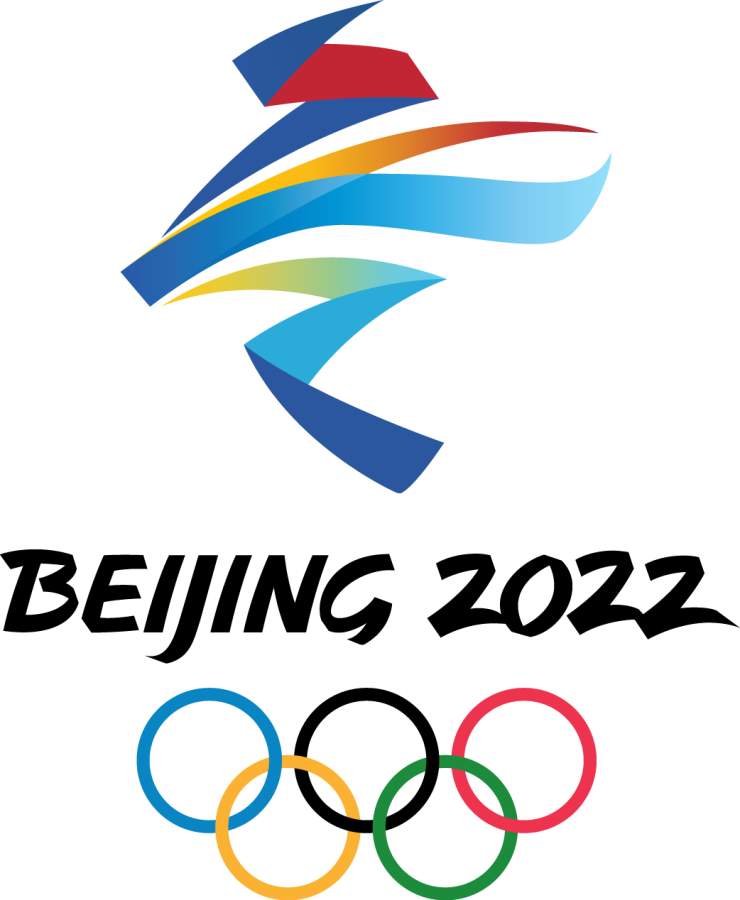The Controversy of the 2022 Beijing Olympics
The Olympics is often a once-in-a lifetime opportunity to shine for athletes. Only coming around every 4 years, athletes dedicate every day in hopes of coming back with an Olympic Medal and Olympic title. This year athletes brought hopeful hearts to Beijing, China where the 25th Winter Olympics were held. With over 91 nations and 2,871 athletes competing, everyone was willing to take the chance. It wasn’t easy to pull off the Olympics, however, with zero-COVID policies and boycotting taking place, as we could see the Tokyo Olympics were delayed by a whole year. Yet, through all the trouble, we still got the joy of cheering on our favorite athletes and watching the faces of winners and pride they hold as they stand on the podium. No matter the circumstance or outcome, nobody can deny that the Olympics is one of the biggest sporting events in the world.
Now, arguably the most anticipated two things from the Olympics, as we all know, are the opening ceremony and the closing ceremony. Although this year’s ceremony wasn’t like the 2008 Summer Olympics, we still got to see a stunning technologically-savvy performance that showcased the Olympic motto: ‘Together for a Shared Future’. The iconic Olympic Rings were ‘melted’ away by lasers from a large block. Beforehand, the block projected a commemoration to the past Olympics. Like every Olympics, during the ceremony, every nation marched out with honor, holding their flag. Rollerskaters glided across the stage, unfolding designs and pictures of communities together during the pandemic, like a story book. Dancers held snowflakes with glowing letters of the 91 nations. The performance of the snowflakes and the dancers shared the message, “we’re all different and unique, just like snowflakes, not one is identical to another.” Transitioning from winter to spring, a stunning performance took place in which performers held long led beams, representing the crisp green grass, an entrance to spring. Last but not least, was the lighting of the cauldron where the olympic torch was put into a snowflake that elevated to the top of the “Birds Nest”. Finally, a spectacular amount of fireworks exploded and skyrocketed into the midnight sky, officially opening the Olympics.
The COVID protocols for the Olympics have changed many things and made many people question whether the Winter Olympics would even happen. Because of the pandemic, there were already numerous plans that had to be adjusted in order to keep everyone safe. One of the main protocols was that athletes had to be vaccinated (or put into a long quarantine), take COVID tests every day, and wear masks when not competing or training. Anyone who tested positive would have had to be sent into isolation and was forbidden from competing in the Olympics until they tested negative. In addition to the vaccine requirement, all other participants, which includes the team staff and news media, were required to be fully vaccinated. However, the definition of “fully vaccinated” varies depending on the country the individual comes from. There were several other protocols enacted to prevent the spread of COVID, especially with the new and highly transmissible variant, Omicron.
This year, competition was fierce, with favorites coming on top and others crumbling under pressure. One of the most anticipated figure skaters is the one and only Nathan Chen. This wasn’t just an “experience” for Nathan, this was a comeback for him. This was the opportunity for him to get his Olympic title, the only medal he was missing. At the 2018 Pyeongchang Olympics, Nathan Chen placed 5th overall in the individual men’s program. But this time around, Nathan Chen was ready, even if it meant going against Yuzuru Hanyu who held two Olympic titles and was the defending champion. This time around, Nathan Chen made sure his “nerves” didn’t get the best of him. He really came to win. In the men’s single skate, Nathan Chen scored 113.97 points for his short program and 218.63 points for his free skating score, amounting to an astounding total score of 332.60 points. He also successfully landed five quadruple jumps, an obstacle for Nathan in the past olympics. This led to Nathan Chen becoming the Olympic champion in men’s figure skating and getting his first Olympic gold medal. Making history, Nathan Chen became the first American figure skater to win gold since 2010. Not only that, but he finally achieved his dream: Olympic Champion.
Now, if you thought the Olympic figure skating scene ended here, you would be wrong. As we have all known for years now, ROC, or Russia, has dominated women’s figure skating. While this year wasn’t any different, it did include a dramatic turn of events, resulting in some tears. Kamila Valieva was the poster child, the shining star and the favorite to win gold. At only age 15, she has won both the European Championship and the Grand Prix. But, the list doesn’t end here. Kamila went into the Olympics with the hopes of carrying a title back home, and that’s exactly what she did…at least for the women’s figure skating team event. She made history. Kamila became the first woman to ever perform a quadruple jump at the Olympics. At just the age of 15! Everything seemed to be going smoothly until heart-breaking news threatened to crack this perfect facade. It turned out that Kamila had tested positive for a banned heart medication called trimetazidine, a drug that can help increase blood flow and endurance. Supposedly, Kamila said that on Christmas, the day the test was positive, she had accidentally taken the heart medication that was for her grandfather. Many are skeptical, and although the doping was still under investigation, Kamila was still allowed to compete in the women’s individual figure skating. This sparked a global controversy surrounding the debate on doping regulations and whether or not the Olympics should lower the age of entering. On Feb. 15 For the short program, Kamila was the top scorer, scoring 82.16 points. Yet, when it came to the free skate on Feb. 17, everything came crumbling down. Kamila fell several times during the performance and held back tears as she finished the routine. As soon as she got off the ice, no one was there to comfort her. Her coach Eteri Tutberidze was cold and distant, offering little to no sympathy. “Why did you let it go?” Tutberidze asked in Russian. “Why did you stop fighting? Explain it to me, why? You let it go after that axel.” Those were the words that Kamila was offered after her already nerve wracking skate. She didn’t reply. As she waited for her score, Kamila burst into tears, clearly distraught. Her score confirmed the worst: within a five minute performance, arguably the best figure skater was thrown off the podium, her dreams crushed from a series of uncharaistic stumbles and falls. Those who sympathize with Kamila state that she was only a minor, only 15, could she really have known what the substances given to her were? In this situation, it was the adults around her who failed. Kamila was always just a pawn to them. But many still disapprove of Kamila’s participation in the Olympics itself. “This is a slap in the face for all those who compete cleanly.” Former U.S. Figure Skater Johnny Weir said in response to the situation. At the end of the day, Kamila Valieva’s controversy created a large speculation on the figure skating scene.
Now onto another popular Winter Olympic sport: snowboarding. The American snowboarder and Olympic gold medalist Chloe Kim “has continued her dominance on the half pipe.” She earned her second gold medal, making her the first woman to win multiple medals in the event ever since it became a sport in the Olympics in 1998. The last time Chloe had won gold was when she was only 17 years old at the 2018 Pyeongchang Olympics. Four years later, at the 2022 Beijing Olympics, she won her second gold medal, earning 94 points, surpassing her other competitors. After successfully defending her title as a back-to-back Olympic champion, Chloe revealed to the public that life as a champion isn’t what most people would assume. Being an Olympic champion comes with fame and pressure that many people have to get used to. In Chloe’s case, she stated she was able to handle the fame and pressure better after winning her first gold medal. However, with the fame came some of the other cons of being well known. She couldn’t go anywhere without being noticed or recognized. In addition, Chloe experienced racism from other people, receiving anti-Asian and Asian hate messages and posts on social media. This made her wonder “if fame and fortune were really for her.” This just brings the dark side of being “famous” to light. She inspired others and talked about her own struggles, telling the public, “It’s unfair to be expected to be perfect, and I’m not perfect in any way. But I think after my last Olympics, I put that pressure on myself to be perfect at all times and that would cause a lot of issues at home. I would be really sad and depressed all the time when I was home and that’s not something…I was hurting the people I love most by doing that. And so I think the biggest challenge for me now is just to be as open as possible because I hope that maybe one day a little girl can hear my story and be inspired to be, you know, to keep going, to never give up, to learn that it’s OK to have a bad day, that you can move on and that you’ll come out in a better place at the end of it all.” Mental health has definitely become a bigger and more talked about topic for many people, including Olympic athletes, and as more people opened up about their mental health, there has been a ton of support online from fans, wishing their favorite athletes well.
Lately, because of the Winter Olympics, there have been some race-related disputes online about certain athletes – one of these athletes being Eileen Gu, “the 18 year old Olympic gold medalist freestyle skier.” Gu is of Chinese descent and was born in San Francisco, but for the Olympics, decided to compete for China. Some people believed she was a “national hero” and the “pride of China” by winning the gold medal for freestyle skiing, while others said she was an “ungrateful traitor,” who wasn’t “fully American” because she chose to compete for China. According to Gu, she made her decision to compete for China because she wanted to be a role model for female athletes in China “and raise the profile of skiing in a country where it is still largely a nascent sport.” Online, while China praised her for being “perfect,” many Americans labeled her as an “ungrateful child of America.” There has been a lot of conversation over Gu abandoning the United States to go represent China.
This year’s 2022 Beijing Winter Olympics has been one of the most controversial Olympics ever and will be remembered to some as the “scandal olympics.” It was full of arguments, scandals, and tension but was exciting nonetheless.
Grade: 7
Years on Staff: 1
Why are you writing for the Flintridge Press?
I enjoy writing and learning about new topics that are around us everyday.
Quote:...
Grade: 7
Years on Staff: 1
Why are you writing for the Flintridge Press?
I am on the Flintridge Press because I am interested in writing things...








